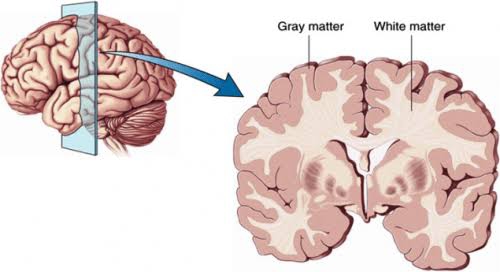Yoga Effects on Brain Health: India has been on the forefront on taking YOGA to the world. On June 15, 2015, the entire world witnessed its first official Yoga Day. Since then, the practice continues till date. This has increased India’s might on the global stage, as the world has accepted the good effects of Yoga. Countries like Saudi Arabia, too could not deny the impact of Yoga on human lives and thus accepted the practice. While Yoga may appear to the newer generation of tech-grads as some stretching exercise, there is a lot more to it.
The Vedic roots of Yoga
No matter what the pseudo-intellectual dimwits propagate, Yoga is an integral part of the Vedic/Sanatan culture. Bhagwan Shiv is believed to have imparted the knowledge of Yoga to mankind on this day, hence is referred to as Adi Yogi. The first reference of Yoga comes in Rigveda and the formal compilation of Yoga was made in the Yoga sutras by Maharishi Patanjali.
The Yoga Sutras explain Yoga in terms of mental, physical, and spiritual discipline. The disciplines include Yama (dos), Nyama (don’ts), Pratyahara (daily observation), Dhyana (concentration), Dharana (understanding the object) and Samadhi (deep meditation).
Although, in recent times Yoga has been sold in the market as a tool for physical fitness, stress relief and relaxation techniques.
Read more: Bursting the pseudo-secular myth: Yoga is indeed a part of Hinduism and Vedic religion.
Yoga relaxes the body and mind – Yoga Effects on Brain Health
The ones practising Yoga on a daily basis, will vouch for its benefits, how it makes them feel not only relaxed but also stronger. The practice of Yoga lays emphasis on breathing practices and meditation, which helps calm and better the mind. It may appear surprising to many, but yoga brings mental benefits as well and reduces ailments like anxiety and depression.
As Yoga reached the world, there have been several researches that have been conducted with relation to it. Jonathan Greenberg, PhD, fellow at the department of psychiatry at Massachusetts General Hospital and Medical School opined about Yoga that “We know that accumulating evidence shows Yoga is good for your body, health and mind. Yoga has been used in the treatment of anxiety conditions, depression, insomnia, eating disorders and others.” Greenberg, pointing to evidence, said that research shows that yoga in general can help improve mood and emotional regulation, both of which are associated with reductions in the stress hormone cortisol.
Another study in the journal Frontiers in Immunology suggests that mind-body exercises like yoga actually decrease the cascade of inflammation that often sits simmering in the body and wreaking havoc due to chronic stress.
Read more: We can live for at least 150 years, provided we go back to our ancient way of life
What Yoga does to human-brain
Scientific analysis suggests that yoga works on the HPA axis – (hypothalamic-pituitary-adrenal axis), that controls the sympathetic nervous system as well as parasympathetic nervous system, which deals with fight and flight response and relaxation, respectively.
Yoga reduces the SNS and increases the PNS, which helps in relaxation and reduces heart rate and blood pressure.
Technological development has done good to human civilization. As it is due to technological advancement that we can see how regular practice of yoga affects the human brain through modern technology and functional MRI scans.
Yoga Effects on Brain health and cells
Human brain is made up of two types of tissues- white and gray matter, which account for 60% and 40%. The gray matter, which is actually pink in colour, is responsible for functions including skill and memory. It is also responsible for the functionality of interpreting your senses of sight, hearing, smell and touch. Additionally, it affects your muscle control and self-awareness. Research suggests that yoga increases gray matter volume in the hippocampus and frontal sections of the brain. Yoga makes the gray matter denser, thus helping in better performance.

Yoga also increases cortical folds, thus increasing the surface area. The more the surface area of the brain, the more active your brain becomes, as more surface area contains more neurons, thus enhancing the brain function.
Yoga is not a set of GenZ exercises, which increases flexibility, fitness, inner peace and helps in relieving stress. Yoga brings in positive emotions, tranquillity and enhances revitalisation, thus enhancing cognitive performance. This is the reason why psychiatrists suggest their patients to do yoga along with medicines. Yoga is not just a tool for stretching rather it helps in achieving mindfulness and the attention to breathing, thoughts and meditation ensures a peaceful life for the humans.
Support TFI:
Support us to strengthen the ‘Right’ ideology of cultural nationalism by purchasing the best quality garments from TFI-STORE.COM




























